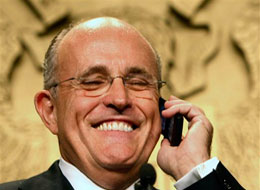Since 2001 the dollar has lost more than half its value against the euro. It now costs nearly $1.40 to buy one euro. And it isn’t just the euro that seems to be growing stronger against the US dollar. It has declined against many other major world currencies, and even including minor ones like our peso, reflecting the dollar’s loss of purchasing power.
As the Los Angeles Times reported, “in much of the world — from Brazil to Poland to Thailand — one dollar buys less than it did a year ago, and far less than it did four years ago. On Friday, the US currency hit a 30-year low against its Canadian peer.”
Since 2001 the dollar has lost more than half its value against the euro. It now costs nearly $1.40 to buy one euro. And it isn’t just the euro that seems to be growing stronger against the US dollar. It has declined against many other major world currencies, and even including minor ones like our peso, reflecting the dollar’s loss of purchasing power.
As the Los Angeles Times reported, “in much of the world — from Brazil to Poland to Thailand — one dollar buys less than it did a year ago, and far less than it did four years ago. On Friday, the US currency hit a 30-year low against its Canadian peer.”
There isn’t a single explanation for why currencies rise and fall, the LA Times explains, but many experts believe that the sliding dollar is largely a function of the nation’s borrowing binge of the last two decades. That has left the US with a yawning trade deficit and the fact that it is deep in debt to foreigners.
Alan Greenspan, the former chairman of the US Federal Reserve, blames President George W. Bush for America’s current economic problems. Greenspan says Bush pays too little attention to financial discipline. In a book to be published this week, In The Age of Turbulence: Adventures in a New World, Mr. Greenspan says Mr. Bush ignored his advice to veto “out-of-control” bills that sent the US deeper into deficit.
There isn’t a single explanation for why currencies rise and fall, the LA Times explains, but many experts believe that the sliding dollar is largely a function of the nation’s borrowing binge of the last two decades. That has left the US with a yawning trade deficit and the fact that it is deep in debt to foreigners.
Alan Greenspan, the former chairman of the US Federal Reserve, blames President George W. Bush for America’s current economic problems. Greenspan says Bush pays too little attention to financial discipline. In a book to be published this week, In The Age of Turbulence: Adventures in a New World, Mr. Greenspan says Mr. Bush ignored his advice to veto “out-of-control” bills that sent the US deeper into deficit.
Labels: Buh Economy, Bush Crime Familuy, The decline of teh dollar, World Reserve Currency

















































